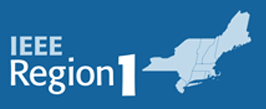
- This event has passed.
Reconfigurable Optical Wireless Applications in Data Centers
March 8, 2018 @ 11:30 am - 1:30 pm
On Thursday, March 8, the IEEE New Jersey Coast Communications (COM019) Chapter is organizing an “online” distinguished lecture. Dr. Mohsen Kavehrad, the Director of Center for Research in Knowledge Communications (CRKC) and the W. L. Weiss Chair Professor (retired) of Electrical Engineering at Pennsylvania State University, will give a Webex presentation on Reconfigurable Optical Wireless Applications in Data Centers. This meeting is available online. Please register using the registration link:
https://events.vtools.ieee.org/meeting_registration/register/162947
To join the meeting, please click on the Webex link below on Thursday, March 8, around 11:45 a.m. The presentation will start at 12:00 noon.
Webex site: http://ieeemeetings.webex.com/meet/mmga-nj-coast-section
Select “connect by computer” for audio. In case of a bad audio connection, use the additional dial-in option:
US Toll +1 210 606 9466
US Toll Free +1 866 282 7366
Telephone access information
Meeting number : 590 457 855
Access code : 590 457 855
The title and abstract of the distinguished lecture presentation follow below.
Reconfigurable Optical Wireless Applications in Data Centers
Dr. Mohsen Kavehrad, Director of Center for Research in Knowledge Communications (CRKC) and W. L. Weiss Chair Professor (retired) of Electrical Engineering at Pennsylvania State University.
Abstract –
Data centers (DCs) are a critical piece of today’s networked applications in both private and public sectors. The key factors that have driven this trend are economies of scale, reduced management costs, better utilization of hardware via statistical multiplexing, and the ability to elastically scale applications in response to changing workload patterns. A robust datacenter network fabric is fundamental to the success of DCs and to ensure that the network does not become a bottleneck for high-performance applications. In this context, DC network design must satisfy several goals: high performance (e.g., high throughput and low latency), low equipment and management cost, robustness to dynamic traffic patterns, incremental expandability to add new servers or racks, and other practical concerns such as cabling complexity, and power and cooling costs. Current DC network architectures do not seem to provide a satisfactory solution, with respect to the above requirements. In particular, traditional static (wired) networks are either:
(i) overprovisioned to account for worst-case traffic patterns, and thus incur high cost (e.g., fat-trees or Clos), or
(ii) oversubscribed (e.g., simple trees or leaf-spine architectures) which incur low cost but offer poor performance due to congested links.
Recent works have tried to overcome the above limitations by augmenting a static (wired) “core” with some flexible links (RF-wireless or optical). These augmented architectures show promise, but offer only incremental improvement in performance. Specifically, RF-wireless based augmented solutions also offer only limited performance improvement, due to inherent interference and range constraints of RF links. Optical solutions offer high-bandwidth links and low latency, but have limited scalability, offer only limited flexibility (e.g., bipartitematchings between the racks), and have a single point of failure. Furthermore, all the above architectures incur high cabling cost and complexity.
A robust datacenter network is fundamental to the success of critical and high performance networked applications today. Designing a datacenter network is challenging as it must simultaneously satisfy several goals: high-throughput and low latency, low equipment and management cost, robustness to dynamic traffic patterns, incremental expandability, and other practical concerns such as cabling complexity, energy footprint, and cooling costs. In this context, traditional static network designs offer undesirable cost-performance tradeoffs: simple tree or leaf-spine designs incur less cost but provide poor performance, while high-performance Closnetwork or FatTree-like solutions are expensive as they are overprovisioned to account for worst-case traffic patterns. Recent work suggests augmenting these static networks with a few flexible (wireless or optical) links. However, these solutions offer incremental improvements and suffer from other limitations. Furthermore, all above architectures induce high cabling complexity, which increases cooling and energy costs.
This project explores an alternative design point—a fully flexible and all-wireless datacenter inter-rack network based on free-space optical (FSO) links. This vision, if realized, will offer unprecedented qualitative and quantitative benefits over state-of-the-art solutions:
(1) A flexible network can provide performance comparable to overprovisioned solutions with less infrastructure cost by adapting the topology to the prevailing traffic patterns;
(2) It eliminates cabling complexity, and cooling and power overheads;
(3) It acts as an enabler for datacenter operators to consider experimental topology designs that would otherwise be unrealizable; and
(4) It can take us closer to the vision of an energy-proportional datacenter by allowing operators to selectively enable links.
There are several fundamental challenges that need to be addressed to make this vision practical:
(i) design of practical high-throughput FSO links for datacenters that are reconfigurable with low latencies;
(ii) algorithmic foundations for designing flexible topologies; and
(iii) scalable network management mechanisms to guarantee correctness and performance.
We will discuss these issues in an oral presentation.
Speaker(s): Dr. Mohsen Kavehrad,
Agenda:
11:45 a.m. Login to the Webex site: http://ieeemeetings.webex.com/meet/mmga-nj-coast-section
12:00 noon. Distinguished Lecture by Dr. Mohsen Kavehrad
1:00 p.m. Q&A
Location:
http://ieeemeetings.webex.com/meet/mmga-nj-coast-section
Meeting number: 590 457 855 Access code: 590 457 855
Monmouth County, New Jersey


